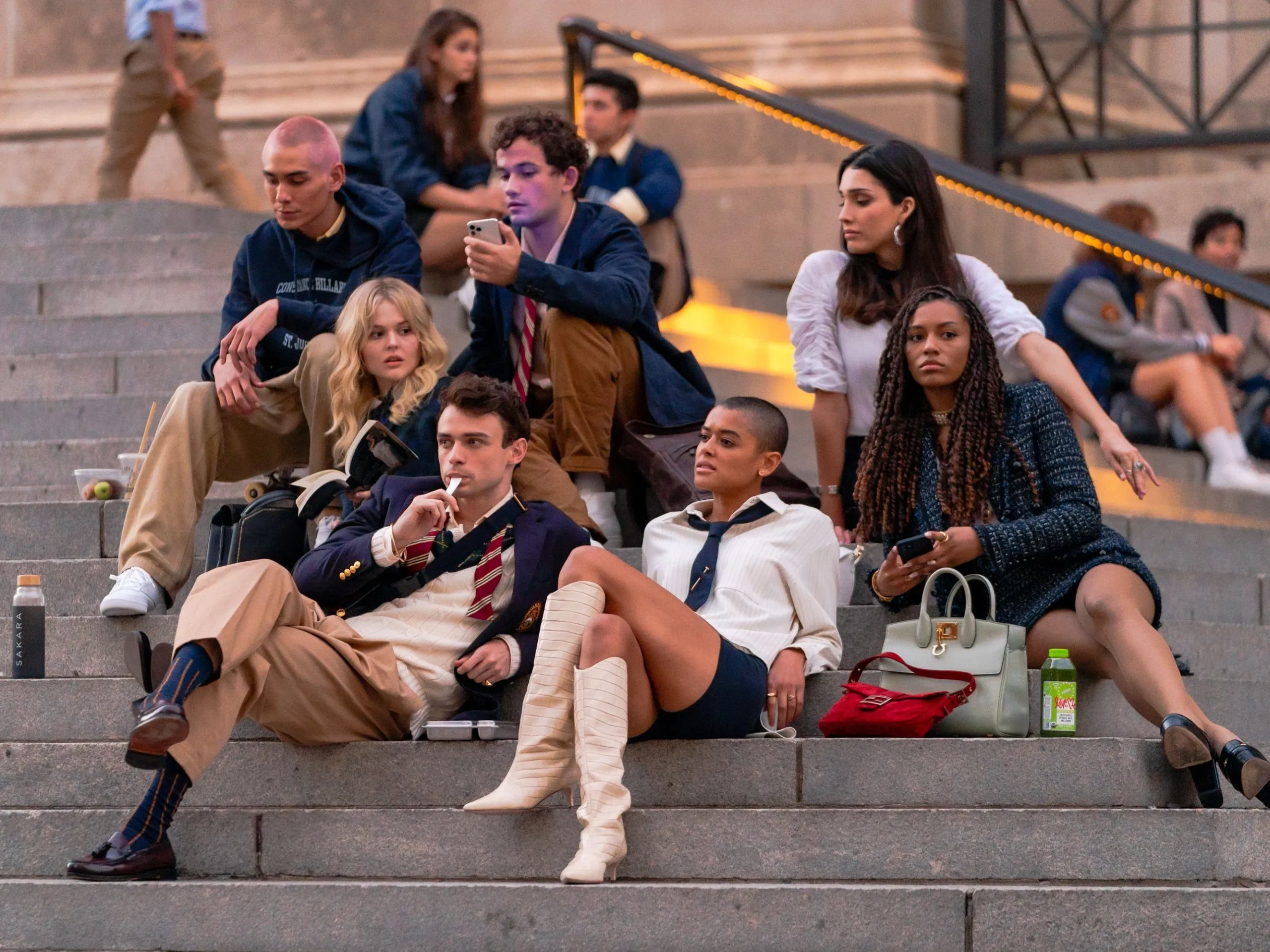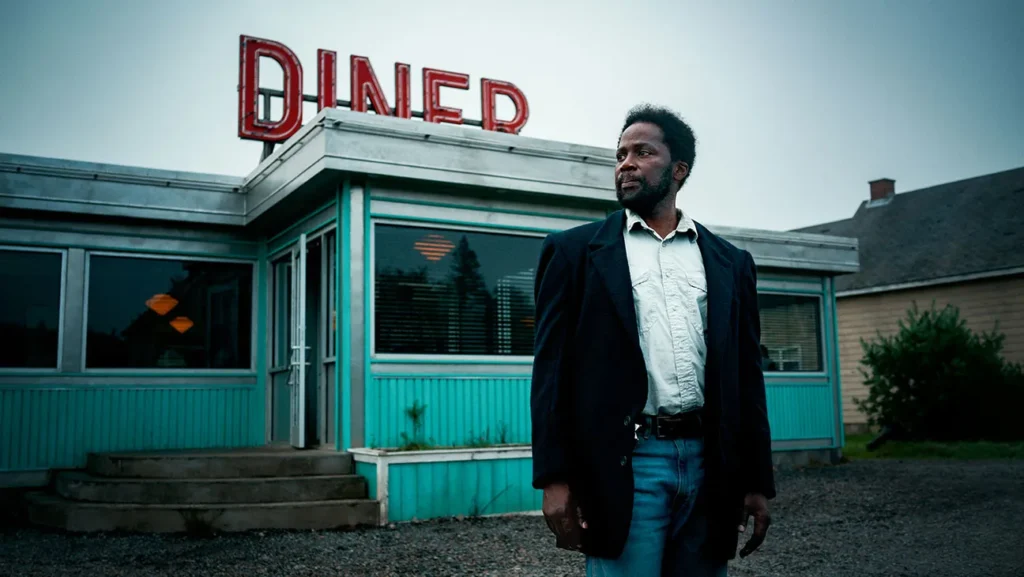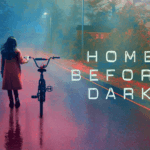The Gossip Girl reboot made its highly anticipated debut on July 8, 2021, exclusively on the streaming platform HBO Max. Reviving the enthralling essence of New York City’s most elite adolescents, this new installment, much like its predecessor, delves into the glamorous yet tumultuous lives of the Upper East Side’s youth. At the heart of the reboot is the iconic narrator, once again brought to life by the unmistakable voice of Kristen Bell, whose presence serves as a comforting bridge between the two eras.
Set nearly a decade after the original series ended, the reboot maintains the core elements that made Gossip Girl a cultural phenomenon, while infusing it with contemporary sensibilities. The necessity for a reboot became apparent as the original show’s enduring popularity continued to grow, prompting a desire for content that resonated with modern viewers. Fans old and new were eager to see how the intricate dynamics of privilege, scandal, and secrecy would unfold in today’s digitally connected world.
This revamped version of Gossip Girl acknowledges the shifts in societal norms, emphasizing inclusivity and open-mindedness, which was somewhat lacking in the original. Addressing contemporary issues such as diversity and LGBTQ+ representation, the reboot aims to reflect the changing landscape of social dynamics, making it more relatable for today’s audience. Such an approach underscores the evolution of the show’s characters and their interactions, highlighting themes of acceptance, identity, and modern-day challenges.
By marrying the nostalgic allure of its predecessor with the progressive values of today, the Gossip Girl reboot promises a captivating and mature viewing experience. It sets out to entertain while offering a reflective lens on the complexities of contemporary adolescence. Fans eagerly awaited this fresh yet familiar tale, hopeful it would rekindle the intrigue and excitement that made the original series a beloved staple in popular culture.
Diverse Casting and Representation
The Gossip Girl reboot has consciously departed from the original series by embracing a more diverse and inclusive cast. This modern adaptation integrates actors from a variety of racial and ethnic backgrounds, as well as prominently featuring LGBTQ+ characters. Not only does this varied representation enhance the show’s connection to today’s audience, but it also brings a heightened sense of authenticity and relatability to the storytelling.
One standout character who exemplifies this new direction is Julien Calloway, portrayed by African-American actress Jordan Alexander. Julien’s role as a fashion influencer allows the show to delve into the complexities surrounding race and social media, subjects that the original Gossip Girl barely skimmed. Additionally, the character Zoya Lott, played by Whitney Peak, further represents the series’ commitment to diverse casting. Zoya’s narrative significantly adds to the cultural tapestry of the show by addressing the experiences of biracial teenagers.
The inclusion of LGBTQ+ characters is also more robust and meaningful in the reboot. A prime example is Max Wolfe, played by Thomas Doherty, whose pansexual identity is portrayed with nuance and depth. Max’s storyline explores a wide array of relationships and challenges, thereby offering a balanced and comprehensive depiction of a young LGBTQ+ individual. This is in stark contrast to the original series, which often sidelined such characters or employed them in stereotypical roles.
These diverse representations significantly contribute to the narrative depth and authentic portrayal of contemporary society in the Gossip Girl reboot. The meticulous effort to weave in various cultural and sexual identities aligns the show more closely with the real-world complexities and diversities of its audience, thereby rendering the storytelling more accessible and engaging.

Modern Themes and Social Issues
The Gossip Girl reboot ambitiously tackles a variety of contemporary themes and social issues, making it markedly different from its predecessor. Modern adolescence is presented through a multifaceted lens that includes the impactful presence of social media, which plays a pivotal role in character interactions. The reboot adeptly illustrates how platforms like Instagram and Twitter serve both as battlegrounds and stages where the personal is inevitably public.
One notable narrative arc involves Zoya Lott, a newcomer to Constance Billard, who navigates the treacherous waters of identity politics. Her journey intersects with themes of racial and socio-economic diversity, bringing a fresh perspective on the challenges faced by teens today. Unlike the original series, which often skirted around heavy issues, the reboot courageously delves into Zoya’s struggle to reconcile her working-class background with an elite, predominantly white school environment.
Body positivity also finds significant representation through the character of Luna La, a fashion-forward influencer. Her storyline portrays the evolving discourse on body image, celebrating diverse body types and challenging the outdated norms perpetuated by the fashion industry. Luna’s arc is a testament to the show’s dedication to making inclusivity more than just a buzzword.
Mental health is another salient theme that finds a place in the reboot. Audrey Hope, for example, provides a window into the often stigmatized world of mental health issues. Her battles with anxiety are skillfully woven into the narrative, bringing an authentic and relatable portrayal of mental health struggles among teenagers. The inclusion of therapy sessions and conversations about mental well-being emphasizes self-care and reduces the stigma often associated with these subjects.
Through these layered storylines, the Gossip Girl reboot offers a more profound and meaningful content palette. Such themes do more than just entertain; they provide viewers with a reflective mirror on the complexities of contemporary adolescence, making the reboot a more mature and socially aware version of the original show.
Fan Reactions and Critical Reception
The Gossip Girl reboot has elicited a variety of responses from both fans and critics, reflecting the complexities of modern television audiences. Enthusiasts of the reboot have praised its commitment to inclusivity, lauding the diverse cast and progressive storylines. LGBTQ+ representation, in particular, has been highlighted as a significant improvement over the original series. Many fans on social media have celebrated the show for presenting multifaceted characters who resonate with a broader range of viewers, reflecting a more authentic and inclusive society.
On the other hand, some longtime fans of the original Gossip Girl have expressed reservations. Criticisms have often centered around perceived departures from the core elements that initially made the show a hit. These detractors argue that the reboot has strayed too far from the original’s tone and storyline, focusing instead on social issues at the expense of scandalous intrigue and high-society drama.
Critical reception has mirrored these mixed reactions. Major publications have offered a spectrum of reviews. Publications like Variety and Entertainment Weekly have commended the reboot for its bold and necessary updates, arguing that its modern approach is timely and significant. Conversely, critics in outlets such as The New York Times have expressed concern that the show’s heavy-handed focus on social commentary might alienate long-time fans who were drawn to the original’s escapist elements.
Social media platforms provide an even more nuanced view. A broad swath of tweets and posts reflect joy, disappointment, and everything in between. This digital discourse often emphasizes the importance of the changes the show has introduced while also recognizing the challenge in balancing new perspectives with existing expectations.
Given this mixed reception, the future direction of the Gossip Girl reboot remains a topic of speculation. Producers may need to continue adapting, blending their new inclusive vision with the drama and allure that characterized the original. This blend could very well set the standard for the evolving expectations of television audiences in the 21st century, who seek both escapism and relevance in their viewing experiences.









